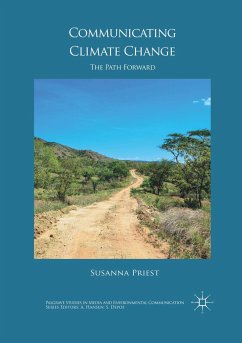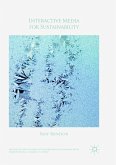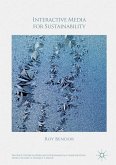This book asks and answers the question of what communication research and other social sciences can offer that will help the global community to address climate change by identifying the conditions that can persuade audiences and encourage collective action on climate.
While scientists often expect that teaching people the scientific facts will change their minds about climate change, closer analysis suggests this is not always the case. Communication scholars are pursuing other ideas based on what we know about influence and persuasion, but this approach does not provide complete answers either. Some misconceptions can be corrected by education, and some messages will be more powerful than others. The advent of the Internet also makes vast stores of information readily available. But audiences still process this information through different filters, based on their own values and beliefs - including their understanding of how science works. In between momentous events, media coverage of climate tends to recede and individuals turn their attention back to their daily lives. Yet there is a path forward: Climate change is a social justice issue that no individual - and no nation - can solve on their own. A different sort of communication effort can help.
While scientists often expect that teaching people the scientific facts will change their minds about climate change, closer analysis suggests this is not always the case. Communication scholars are pursuing other ideas based on what we know about influence and persuasion, but this approach does not provide complete answers either. Some misconceptions can be corrected by education, and some messages will be more powerful than others. The advent of the Internet also makes vast stores of information readily available. But audiences still process this information through different filters, based on their own values and beliefs - including their understanding of how science works. In between momentous events, media coverage of climate tends to recede and individuals turn their attention back to their daily lives. Yet there is a path forward: Climate change is a social justice issue that no individual - and no nation - can solve on their own. A different sort of communication effort can help.
"This book discusses communication for committed climate change activists determined to promote activism. It assumes climate change is due to humans, is dangerous, is imminent, and is controllable. It also explores the idea that better communication will help solve the problem. ... Summing Up: Recommended. All readers." (T. N. Chase, Choice, Vol. 54 (11), July, 2017)
"Priest has written an easy-to-read thought-provoking book, which can be used to introduce science communication to undergraduate and graduate students who will gain understanding of the debates and future direction of the field, as well as potential spaces for action. ... For an engaged reader, however, research opportunities are easy to identify, and Priest even offers possible questions that, if explored and answered, will surely mark the path forward for science communication." (José Castro-Sotomayor, Language & Ecology, ecolinguistics-association.org, 2017)
"Priest has written an easy-to-read thought-provoking book, which can be used to introduce science communication to undergraduate and graduate students who will gain understanding of the debates and future direction of the field, as well as potential spaces for action. ... For an engaged reader, however, research opportunities are easy to identify, and Priest even offers possible questions that, if explored and answered, will surely mark the path forward for science communication." (José Castro-Sotomayor, Language & Ecology, ecolinguistics-association.org, 2017)








